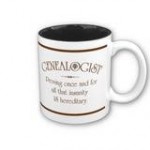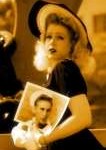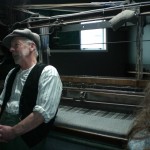Search results
What is a Resident Genealogist?
February 10, 2012 by ramona
Filed under Articles, General Tips, Getting Started in Genealogy, Introduction to Genealogy, Latest News
 A resident genealogist is a professional on staff at a library, archives or even on a genealogy website who is there to provide family tree research advice and guidance, particularly to genealogy beginners. A quick question to the resident genealogist may save you time as well as a great deal of frustration and it can be a lot of fun.
A resident genealogist is a professional on staff at a library, archives or even on a genealogy website who is there to provide family tree research advice and guidance, particularly to genealogy beginners. A quick question to the resident genealogist may save you time as well as a great deal of frustration and it can be a lot of fun.
If nothing else your Genealogist in Residence is almost certainly, part detective and part historian. A website with a resident genealogist is showing you how much they care about you, their members and how important it is to them to help you in every way they can.
What Does a Resident Genealogist Do?
A resident genealogist:
- Searches out new genealogy resources
- Provides educational materials
- Writes articles about genealogy
- Answers questions about family tree research
- Can help genealogy beginners to understand genealogical documents
- Provides tips and inspiration to keep you motivated
The primary duty of a resident genealogist is to help you learn to conduct your own genealogy research.
How can a Resident Genealogist Help Me?
When you have hit a brick wall a resident genealogist can help you find more resources or make suggestions on where to look next. If you are having a difficult time understanding your ancestor’s birth, marriage or death certificate, a resident genealogist is always happy to help. Any problem you come across is like candy to a resident genealogist, so do not be shy about asking.
What Kind of Questions can I ask?
You can ask any questions you need; no question is too big or too small. When asking your question include the details, give the names dates and places of the ancestor you need help with. State why reading a particular document is a problem, is the writing is too faded or messy. Want to know what a third cousin twice removed is or what all those numbers on a Family Tree form mean…just ask!
Genealogy Beginner encourages you to go to our resident genealogist with your questions. You can usually find her on the Ask a Genealogist forum or on our Facebook page.
Image Credit: dbickert via Photobucket
Free Genealogy Search: 1940 US Census Returns Go Live April 12, 2012
October 12, 2011 by ramona
Filed under Articles, Latest News, Public Records
 A visit to the National Archives genealogy resources page evokes a subtle sense of excitement, as the counter ticks down to the April 2, 2012 release of the 1940 US census returns. These important records will be accessible through public access computers at Nara facilities on a national level. They can also be conveniently accessed through the internet from your personal computer. Better yet, it is free of charge. The 1940 census is the 16th Federal Population Census of the United States and the census day was April 1.
A visit to the National Archives genealogy resources page evokes a subtle sense of excitement, as the counter ticks down to the April 2, 2012 release of the 1940 US census returns. These important records will be accessible through public access computers at Nara facilities on a national level. They can also be conveniently accessed through the internet from your personal computer. Better yet, it is free of charge. The 1940 census is the 16th Federal Population Census of the United States and the census day was April 1.
The questionnaire for this census was a double-sided form that afforded space for 40 entries. There were also two additional lines for the five percent sample questions.
New questions added
Many of the questions answered on the 1940 returns are customary to census questionnaires. However there are several new questions added that are likely to provide clues of great value to your genealogy research. For instance, the 1940 census asks for the name of the person providing the information as well as the birthplace of that person’s mother and father.
Some other interesting questions asked on the 1940 census include:
• Whether the home of the enumerator is owned or rented, as well as the value of the home
• Whether there are any persons currently absent from the household
• Highest completed level of education
• It asks for a specific profession such as salesman, music teacher or laborer etc
• Whether the person is a veteran of the US military or the wife, widow or child of a veteran
• The earliest language spoken at home during childhood
Of a woman’s marital status it asks for the number of times a woman has been married, her age at the time of her first marriage and the total number of children born to her. (Excluding stillbirths)
Research strategies
For those of you who are already eagerly anticipating your research of the 1940 returns. Here are a few strategies to help you get the most out of your investigation. At the top of this list is the knowledge that you will not be able to conduct searches by name, as there will be no name index available when it first opens up. To locate your ancestor, you are going to need their address as well as the enumeration district in which it was located. It may be a good idea to start gathering some of this data now.
In order to find the addresses of the forebear(s) you will be researching. You can start looking them up in city directories. These directories are usually available in your local library, so initiate your inquiry there. If you have already found your predecessors in the 1930 census, use it as a starting point for your 1940 census searches. Another excellent resource for tracking down locations is the WWII draft records.Should you still be having trouble locating the enumeration districts you need? Try the 1940 enumeration district, census maps, as they should contain the district numbers.
It is important to note, that maps may not be available for all towns; in this case, looking at county maps is the next step.
Links to enumeration district finding aids:
• Geographic Descriptions of Census Enumeration Districts
• Enumeration District Maps
• 1940 City Directories at NARA
• Use Stephen P. Morse’s Search engines to locate Census Enumeration District Numbers
This information should get you off to a great start. However, should you want a little more assistance there is a very informative guide available at the NARA Website. Before you leave, grab the table for deciphering the codes used in the 1940 census. Print it out and keep it with your preparation materials for an organized search later. This will give you plenty to do while waiting for April 2, 2012 to arrive.
For more information on this and other great genealogy resources visit: National Archives and Records Administration.
50 Best Blogs for Genealogy Geeks by Online University
May 20, 2010 by Chris
Filed under Articles, Genealogy for Beginners, Latest News
 Genealogy Beginner was rated within the top 50 Best Blogs for Genealogy Geeks online by Online University. We’re proud to share the spotlight with some great fellow genealogy bloggers. You can check out the full list at Online University. They break the list up into four key sections: General, Specific Research Projects, Libraries and Resources, News.
Genealogy Beginner was rated within the top 50 Best Blogs for Genealogy Geeks online by Online University. We’re proud to share the spotlight with some great fellow genealogy bloggers. You can check out the full list at Online University. They break the list up into four key sections: General, Specific Research Projects, Libraries and Resources, News.
The number one blog for each category included:
- General – DearMYRTLE’s Genealogy Blog: Myrtle helps those looking to piece together their family histories learn about the genealogy process.
- Specific Research Projects – AnceStories: The Stories of My Ancestors: Follow this blogger’s journey to learn how to go about your own research project.
- Libraries and Resources – Ancestry.com Blog: Ancestry.com keeps readers and site users updated on genealogy and online research.
- News – GenealogyBlog: This is a daily news blog for genealogy enthusiasts, which outlines special events, collections, research tips, and more.
Thanks again to the great people doing good work over at Online University. We appreciate the mention.
New National Personel Records Center
 National Archives to Dedicate New National Personnel Records Center Annex Facility
National Archives to Dedicate New National Personnel Records Center Annex Facility
Valmeyer, IL . . . The National Archives and Records Administration will formally dedicate its new National Personnel Records Center (NPRC)Annex Facility in the Rock City Admiral Parkway development (1411Boulder Boulevard, Valmeyer, IL) at 1:30 p.m. on Friday, October 24,2008. Speakers scheduled to participate include
U.S. Congressman Jerry Costello (D-IL, 12th), Illinois State Senator Dave Luechtefeld (R-IL,58th), Illinois State Representative Dan Reitz (D-IL, 116th), Monroe County Board of Commissioners Chairman Dale Haudrich, Monroe County Clerk Dennis Knobloch, and Valmeyer Mayor Howard Heavner. The event will also feature a flag-raising ceremony and refreshments. The ceremony isby invitation only, and is open to the working press.
The Valmeyer Annex is located in a retrofitted limestone cave. Theapproximately 400,000 square foot building has a total storage capacityof nearly two million cubic feet of records. The building will primarilyhouse temporary records-mostly military medical treatment records andrecords for civilian Federal personnel who retired after 1973. The moveto the new building is scheduled to be completed by November 2009
The National Archives recently announced that it will also lease a new,built-to-suit facility at 1829 Dunn Road in St. Louis County as its main building. This building will house approximately 2.3 million cubic feet of archival and permanent records, including Official Military Personnel Files and Official Personnel Folders of Federal civilian employees.Together, the Dunn Road facility and the Valmeyer Cave Annex will replace the current NPRC buildings currently located at 111 Winnebago Street and 9700 Page Avenue in St. Louis.
“The Valmeyer Annex will allow us to securely and cost-effectively store these important records for the military and civilian personnel who have so ably served our country,” said NPRC Director Ronald Hindman. “Together with the Dunn Road building, these two facilities will allow us to fulfill our mission of protecting and providing ready access to these records.”
Admiral Parkway, Inc, developed the site. The National Archives and Admiral Parkway, Inc. have entered into a 20-year lease for the building.
The press is invited to cover the ceremony. The site is located at 1411Boulder Boulevard. The ceremony begins promptly at 1:30 p.m. Directionsfrom the Jefferson Barracks Bridge: Drive I-255 East crossing intoIllinois. Merge onto IL-3S via Exit 6 toward Columbia, IL. Take PalmerRoad exit toward Quarry Road. Turn right onto Palmer Road/CR-6S whichbecomes Bluff Road and travel approximately 14 miles. Turn left ontoQuarry Road and follow it to 1411 Boulder Boulevard.
The Handloom Weavers of Perth website
September 11, 2008 by Chris
Filed under Blank Family Tree, Genealogy Occupational Records, Genealogy Records 101
 Genealogy is an ever fascinating subject and you may be surprised at just how many research approaches are available to you. We are all informed about the primary concepts of – start with you and hunt the down those birth, marriage and death records. Very soon after that, avid researchers are busily tracking down the most likely census returns. However, were you aware that you may be missing out on another incredibly valuable but often overlooked resource in researching your ancestor’s; researching their trade?
Genealogy is an ever fascinating subject and you may be surprised at just how many research approaches are available to you. We are all informed about the primary concepts of – start with you and hunt the down those birth, marriage and death records. Very soon after that, avid researchers are busily tracking down the most likely census returns. However, were you aware that you may be missing out on another incredibly valuable but often overlooked resource in researching your ancestor’s; researching their trade?
On many of the above mentioned records you will likely find the profession or trade of your past generations listed along with all of the vital statistics data. From this point on you can begin your journey down an amazing path of discovery, which will not only provide you with more factual information but more importantly bring you closer to knowing exactly who your ancestors were as individuals.
In this wonderful article on “The Handloom Weavers of Perth” from Scotland’s Greatest Story you will get a glimpse of the significance of this type of research and the value it provides not only to your genealogy research but to your family history as well.
After reading this, if you are still thirsty for more information on the subject, follow this link to the The Handloom Weavers of Perth web site.
I hope you enjoy this as much as I did.
The website is available at www.perthweavers.bravehost.com and will be extended further next year, once I get a chance to continue it!
Hopefully it might be of use to some of those with Perth ancestry!
Chris
www.ScotlandsGreatestStory.co.uk
Scotland’s Greatest Story
Professional family history research & genealogical problem solving
…
Where to Next?
…
A Family Tree Search Sunday
February 12, 2008 by Chris
Filed under Articles, Blank Family Tree, Latest News
 This is a neat idea that more communities should consider. What better way to show residents how their tax dollars work than a family tree search Sunday. This story from the Scarborough Evening News reports that residents of Scarborough will be welcome to participate in a unique event every Sunday. It is a day set aside to help research their family trees. The Council Records Office in North Yorkshire County is taking registrations for a family history “day school” intended to aid beginning genealogists in their initial research.
This is a neat idea that more communities should consider. What better way to show residents how their tax dollars work than a family tree search Sunday. This story from the Scarborough Evening News reports that residents of Scarborough will be welcome to participate in a unique event every Sunday. It is a day set aside to help research their family trees. The Council Records Office in North Yorkshire County is taking registrations for a family history “day school” intended to aid beginning genealogists in their initial research.
The Sunday sessions will provide access to parish and non conformist records as well as give lessons on how to use census and registration records. The study days will be headed by Jackie Depelle, a local history tutor and Records Office staff will be on hand to assist participants.
Read the full article …
Too bad it isn’t a bit closer to home.
…
Where to Next?
…
